How to Get Rid of Bahia Grass (Paspalum) in Your Lawn
One of the toughest grassy weeds to control in home lawns across Australia is ‘Paspalum’ (Paspalum notatum) which is an aggressive grower that’s also incredibly resilient ...

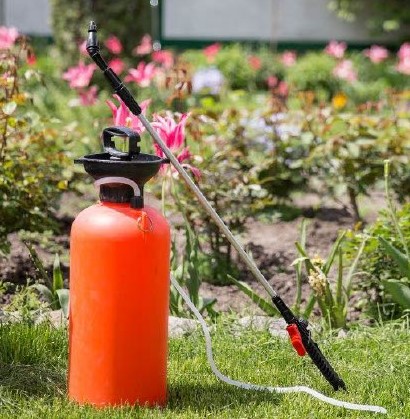
The main step with weed control is to remove them from your lawn before they set seed.
Hand removal should be the first option for weed removal. If you regularly check your lawn and remove and dispose of the weeds then small outbreaks can be kept under control.
However, if you need to use a herbicide (weed killer) for it to work more effectively the lawn needs to be growing vigorously and in good health.
If you have not fed the lawn in the past six to eight weeks fertilise prior to applying your weed killer.
Fertiliser strengthens lawns by opening the leaf’s pores allowing for better absorption of the herbicides.
You must wait at least 2-3 weeks after fertilising before applying the appropriate weed killer at the recommended dosages.
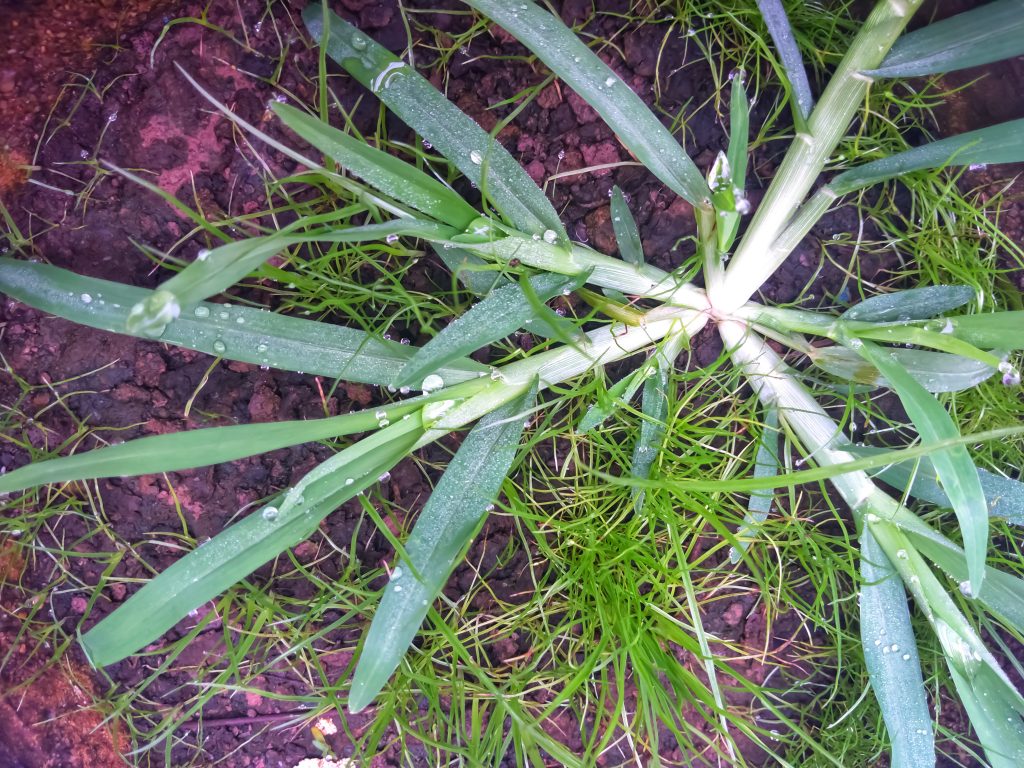
Weeds are a nuisance, but they are just like plants and like to grow thick and rampant.
The best way to be rid of weeds is to create a lawn environment that is difficult for them to thrive within.
What attracts weeds in your lawn is low-mowed grass, compacted soil and water-deprived turf.
Fix these problems by maintaining a healthy lawn and you can say goodbye to weeds.
If removing weeds by hand be sure to remove the roots as well.
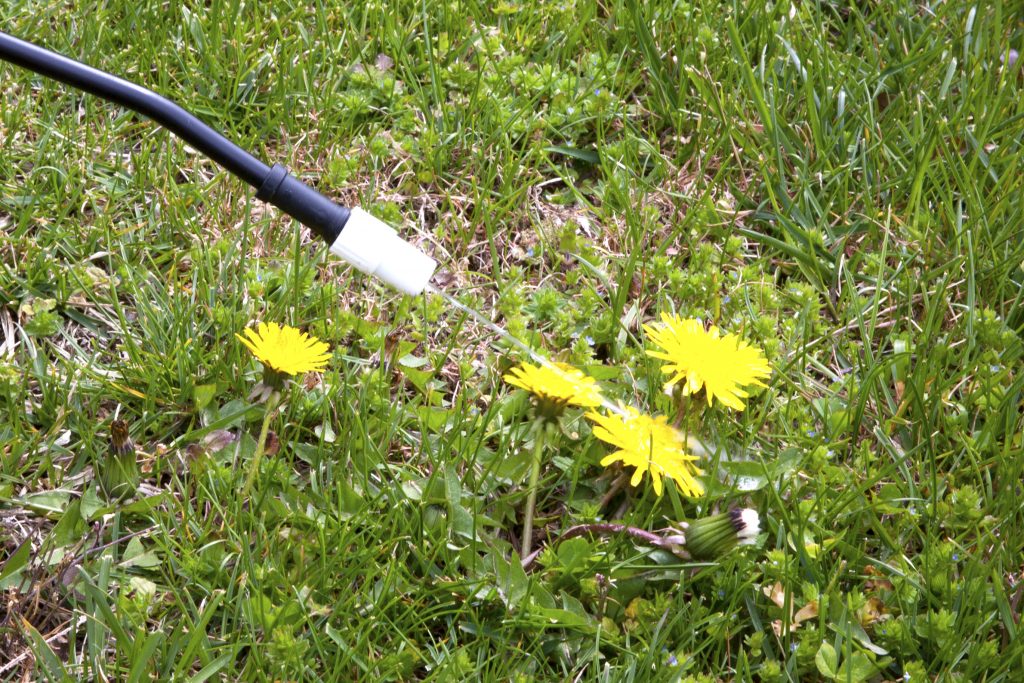
Pre-emergent and post-emergent herbicides (weed killers) are designed to kill weeds but not the lawn. Both are made exclusively for weeds.
Post-emergent herbicides attack weeds after they have shown their ugly little heads. The ‘post’ part of this type of herbicide refers to the fact that it is used on already existing weeds and is applied usually during spring and other times of the year when required.
Pre-emergent herbicides are used before you see signs of weeds usually during autumn or winter.
These herbicides will not affect your lawn if they are applied correctly, and you follow the directions.
Herbicides are available on their own or mixed in with a fertiliser. myhomeTURF recommends referring to LawnPride for more advice or vising your local garden centre.
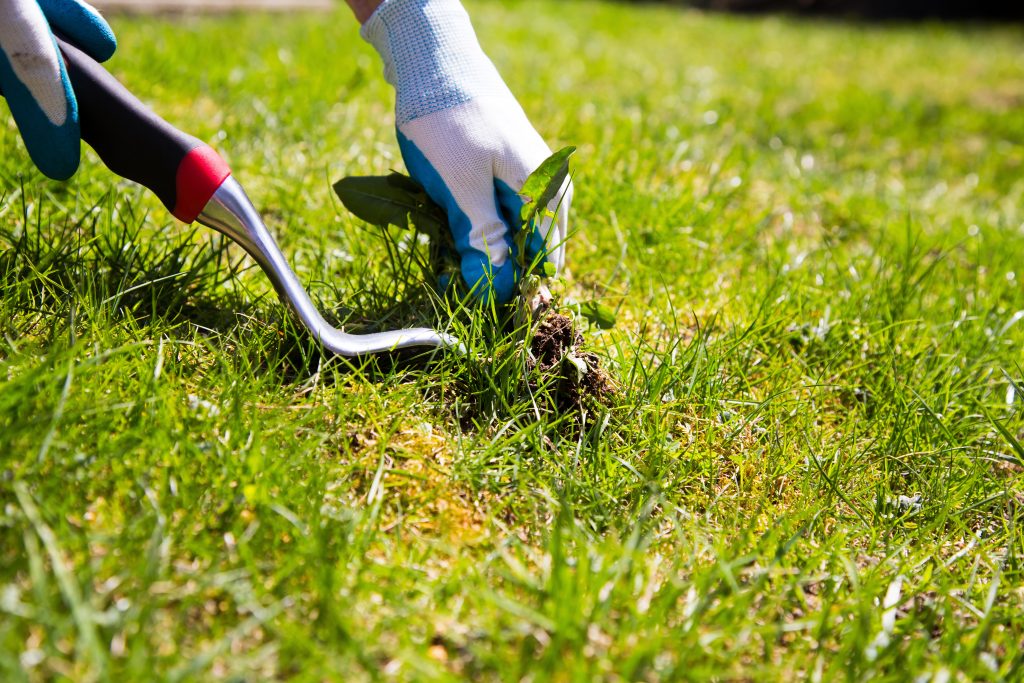
Natural weed removal can be done but it does take time.
Spraying vinegar directly onto the weeds is a natural way to kill them. This method dries out the weed’s leaves and kills what’s above the ground.
Be sure to use vinegar that contains more than the standard 5% Acetic Acid. In order to buy vinegar with 10% to 20% Acetic Acid, it is best to visit your local garden centre rather than the supermarket.
According to United States Department of Agriculture research, using this natural spray enables you to kill 80% to 100% percent of weeds’ top growth.
This natural weed control method works best for a few weeds spread throughout the lawn. You are advised to go for a safe, effective organic herbicide if you have a large spread of weeds on your lawn. These can be available from your local garden centre or myhomeTURF’s online store.
If your lawn is becoming dominated by weeds here are some easy steps to help keep them under control:
What to know more about lawn weeds? Click here – A guide to 10 of the most common lawn weeds
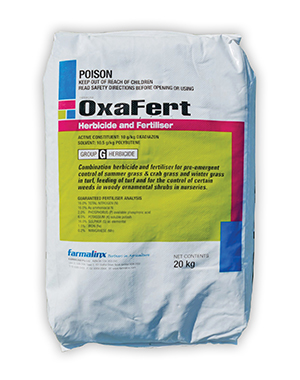
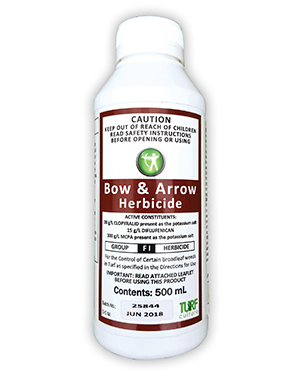
Bow and Arrow 500mL is one of the most effective broadleaf liquid herbicides on the market. Suitable for Zoysia, Kikuyu, Couch and Buffalo grasses however transient discolouration may occur on Kikuyu, Carpet and Queensland Blue Couch lawns. Always read the safety directions and instructions on the product label before use.
SHOP NOW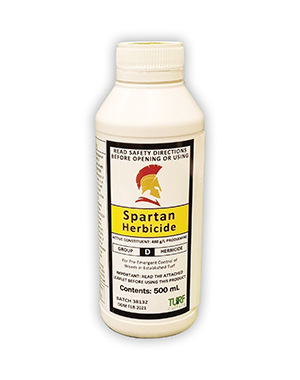
Spartan is one of the leading pre-emergent Herbicides for the control of Crowsfoot Grass, Summer Grass, Winter Grass, Paspalum and other grassy weeds. Suitable for use on Zoysia, Kikuyu, Couch and Buffalo grasses. Always read the safety directions and instructions on the product label before use.
SHOP NOW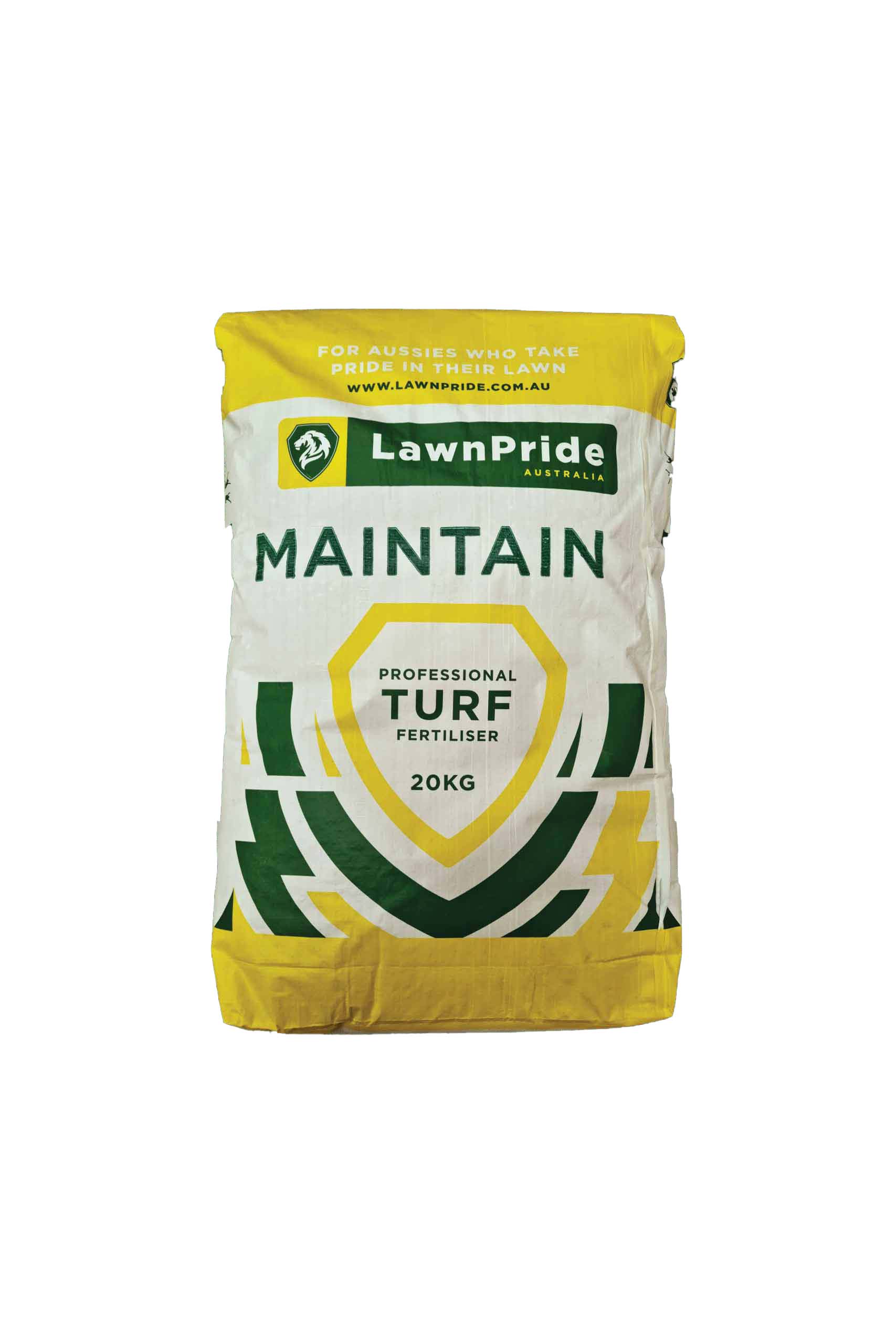
Lawn Pride Maintain 26-2-9 + 3.4 Fe 20kg is one of the most popular granular all-round lawn fertilisers on the market with the active ingredients of Nitrogen (N – 26), Phosphorus (P – 2), Potassium(K – 9) and Iron (Fe – 3.4). Suitable for Zoysia, Kikuyu, Couch and Buffalo grasses. Always read the safety directions and instructions on the product label before use.
SHOP NOW